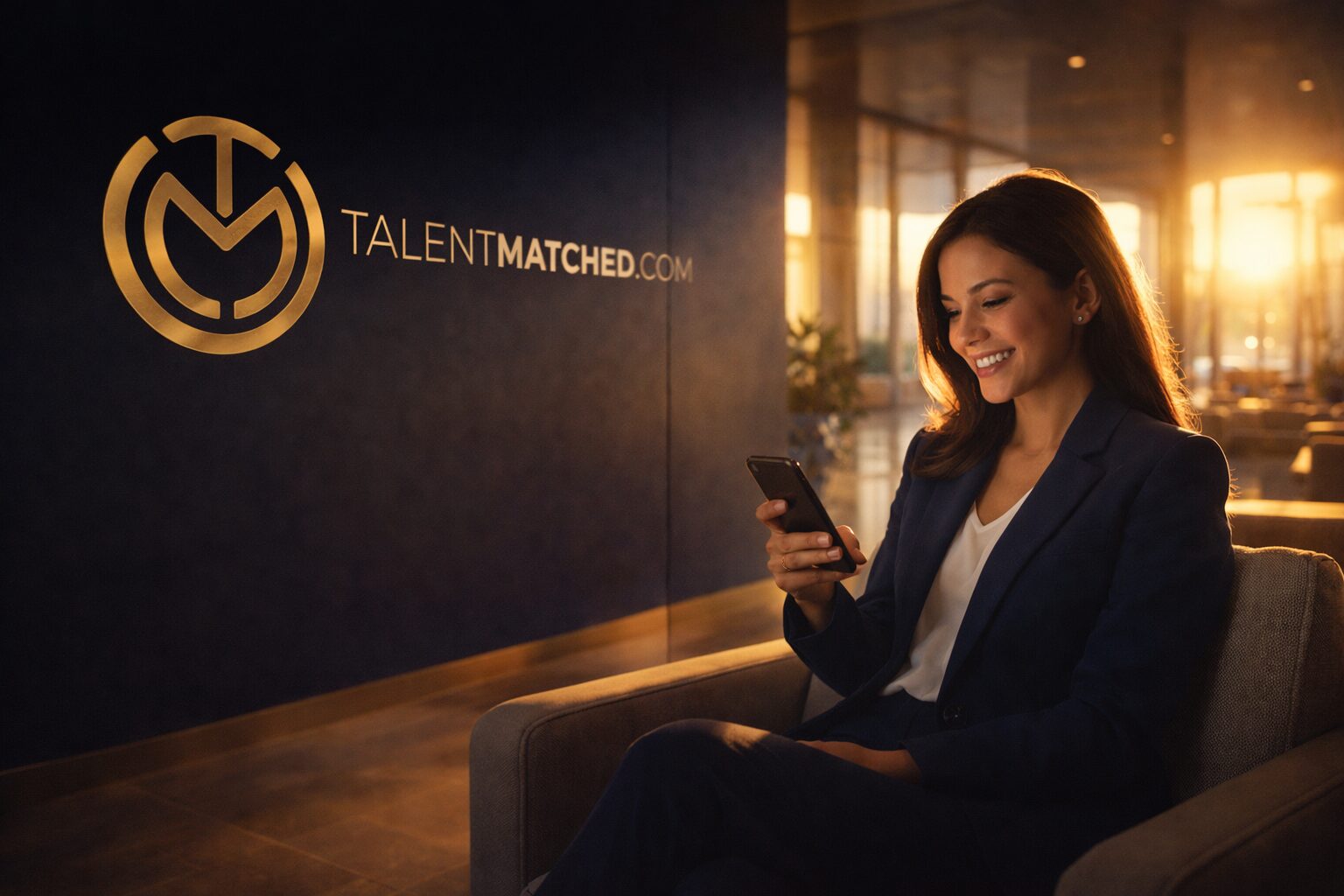The Great Office Escape: Why Hybrid Work is the New Business Superpower (And Why RTO Mandates Are Backfiring Spectacularly)
6 minutes
Picture this: It's Monday morning, and somewhere in corporate Britain, a CEO is standing in an empty office building, coffee in hand, wondering why their £2 million per year office lease is hosting nothing but tumbleweeds and the occasional security guard. Meanwhile, their employees are absolutely smashing their targets from their kitchen tables, garden sheds, and (let's be honest) occasionally from a café in Spain.
Welcome to 2025, where the office has gone from being the centre of the working universe to something more akin to a very expensive meeting room that nobody particularly wants to visit five days a week. The future of work has arrived, and it's not what traditional executives expected.
The Workplace Flexibility Revolution: When Employee Retention Meets Reality
The statistics are as clear as a video call with perfect WiFi: 74% of UK organisations now have hybrid working in place, and nearly 50% of job listings in the UK still offer some form of remote work. These workplace flexibility statistics aren't just a trend—they represent a seismic shift that's reshaping the very DNA of how we work and driving employee retention strategies across industries.
But here's where it gets interesting (and slightly bonkers): whilst Britain is quietly emerging as the global capital of hybrid work, our friends across the pond are witnessing what can only be described as the Great Return-to-Office Tantrum of 2025. Companies like Amazon, Dell, and JPMorgan Chase are practically dragging their employees back to the office kicking and screaming, with Amazon's CEO Andy Jassy mandating that 350,000 corporate employees must return five days a week.
It's like watching someone try to put toothpaste back in the tube—technically possible, but messy, frustrating, and ultimately pointless.
The Trust Paradox: When Micromanagement Meets Modern Reality
Here's a delicious irony: 77% of employees believe that rigid return-to-office mandates are driven by a lack of trust, according to Cisco's 2025 Global Hybrid Work Study led by EVP Fran Katsoudas (@fkatsoudas), whilst simultaneously proving they're perfectly capable of delivering results from anywhere with decent broadband. It's rather like insisting your teenager texts you every hour to prove they're behaving, when their report card already shows straight A's.
The research is damning for the "bums-on-seats" brigade. Return-to-office mandates hurt employee job satisfaction, lead to higher turnover among women, highly skilled and senior tenured employees—precisely the people you definitely don't want walking out the door. Yet some executives persist in this corporate equivalent of cutting off your nose to spite your face.
The Generation Game: When Boomers Meet Gen Z Over Zoom
The generational divide in workplace preferences is more pronounced than the difference between those who can set up their smart TV and those who still can't work out which remote does what. 48% of Gen Z employers believe remote work is most productive, while only 28% of Boomer employers agree.
But here's the twist that'll make your HR department's head spin: 64% of Gen Z employees stressed the value of wellness-related technology in the office (for example, to manage lighting and air quality for an optimal environment). They don't want to return to the sterile, fluorescent-lit boxes of yesteryear—they want offices that are smarter than their smartphones.
AI Recruitment Revolution: Your New Hiring Superpower in the Hybrid Work Era
Speaking of smart technology, whilst executives are debating whether to trust employees to work from home, the truly forward-thinking companies are leveraging AI recruitment tools to revolutionise how they find and hire talent in the first place. The AI in talent acquisition market size is predicted to grow to $1.35 Billion in 2025 at a compound annual growth rate (CAGR) of 18.9%.
Think about it: you're worried about whether Sarah from accounting is actually working from her spare bedroom, when you could be using AI recruitment tools to source, screen, and hire the next Sarah in half the time it takes to send a passive-aggressive email about office attendance. These AI hiring software solutions are transforming talent acquisition faster than return to office mandates can drive people away.
With recruiters spending up to 30 hours a week on sourcing alone, recruitment automation isn't just helpful — it's changing the game. Modern AI tools can automate resume screening, schedule interviews, and even conduct initial candidate assessments, freeing up your talent team to focus on what humans do best: building relationships and making strategic decisions. The best AI recruiting tools are becoming essential employee retention strategies by helping companies find better cultural fits faster.
Work From Home Productivity: The Data That Destroys RTO Arguments
Here's where the return-to-office crowd gets their knickers in a twist: they assume that physical presence equals work from home productivity. It's like assuming that owning a gym membership makes you fit, or that having a Michelin-starred cookbook makes you a chef.
Research over the past year shows that RTO mandates lead to brain drain, driving out top talent, and particularly women, given high childcare costs. Some experts like Stanford professor Nick Bloom even suggest that companies are issuing RTO mandates as a so-called "back channel layoff," where they hope the policy will drive people to quit, while hybrid work specialist Brian Elliott (@brianelliott) notes that flexible organizations are becoming talent magnets. These aren't just employee retention strategies—they're competitive moats.
Imagine spending months recruiting brilliant talent, only to chase them away with arbitrary office requirements. It's the corporate equivalent of buying expensive plants and then forgetting to water them.
The London Advantage: Why Britain Is Winning the Flexibility War
Whilst American executives are playing office attendance bingo, Britain has quietly become the poster child for sensible hybrid policies. The UK currently has the highest share of roles still offering some form of remote work globally, and there's a practical reason for this that goes beyond progressive thinking.
Office space is expensive and so too are train tickets, leaving many living in the suburbs. When a train from Brighton to London costs more than a decent lunch and takes longer than a Netflix episode, hybrid work isn't just nice to have—it's economically sensible.
The Technology Imperative: Building the Infrastructure for Success
The companies thriving in this new landscape aren't just offering flexibility—they're investing in the technology to make it work brilliantly. 90% of employees see value in collaboration tools. However, only 32% of employers are investing in the high-grade collaboration technology that supports flexible, hybrid work models.
This is where the rubber meets the road (or where the Zoom call meets the bandwidth). You can't offer hybrid work 2025 solutions with technology from 2019 and expect optimal results. It's like trying to run a modern restaurant with a wood-fired stove and a prayer.
Similarly, the most successful companies are embracing AI recruitment tools to build diverse, talented teams regardless of geography. When your talent pool isn't limited by commuting distance, you can attract the best candidates from everywhere, not just within a 45-minute train journey. Smart recruitment automation enables this geographic flexibility.
The Future-Proofing Imperative: Adapt or Get Left Behind
The companies still fighting hybrid work are like those that once insisted email was a fad or that the internet would never catch on. Organizations that take flexible hybrid work approaches will get better access to more talent, particularly as demographic trends continue to age populations and immigration policies tighten the labour market, notes workplace expert Brian Elliott (@brianelliott).
The smart money is on building systems and cultures that embrace flexibility whilst leveraging technology—including AI recruitment tools—to maintain competitive advantage. Companies that combine thoughtful hybrid policies with cutting-edge hiring technology aren't just adapting to change; they're setting the standard others will scramble to match.
The TalentMatched.com Solution: Where AI Meets Smart Hiring
Whilst you're crafting the perfect hybrid policy, why not revolutionise your hiring process too? Modern problems require modern solutions, and that's where AI-powered recruitment screening comes into play. Imagine being able to identify the perfect candidates for your hybrid roles in minutes, not weeks, using intelligent algorithms that never need a coffee break or worry about train delays.
If you're ready to see how AI can transform your talent acquisition process, try CV screening for free and discover what happens when technology meets human insight. Because whilst your competitors are debating seating plans, you could be hiring the future.
The Bottom Line: Evolution or Extinction
The writing isn't just on the wall—it's in neon lights, accompanied by a mariachi band and a PowerPoint presentation. 46% of hybrid and remote workers said they would be unlikely to stay in their job if their employer demanded full-time office return.
Companies clinging to pre-2020 working models are like travel agents insisting people still prefer to book holidays through paper brochures, or taxi companies denying that rideshare apps exist. You can maintain the status quo right up until the moment your best talent walks out the door to join companies that trust them to deliver results from wherever they work best.
The future belongs to organisations that embrace hybrid 360 approaches—combining location flexibility, schedule autonomy, and personalised benefits with cutting-edge technology, including AI recruitment tools that can source and screen talent faster than ever before.
The choice is yours: evolve with the times and build a competitive advantage, or become a cautionary tale whispered in business schools about companies that missed the boat, the plane, and the very obvious writing on the wall.
The train has left the station, the ship has sailed, and the office building is looking rather empty. The question isn't whether hybrid work is here to stay—it's whether you'll be smart enough to get on board before your competitors leave you standing on the platform, wondering where everybody went.
Get your first 100 CV screens free
Ready to stop drowning in unqualified applications and start surfacing quality candidates?
✓ No credit card required
✓ Set up in under 2 minutes
✓ Integrates with your existing systems
✓ Cancel anytime




